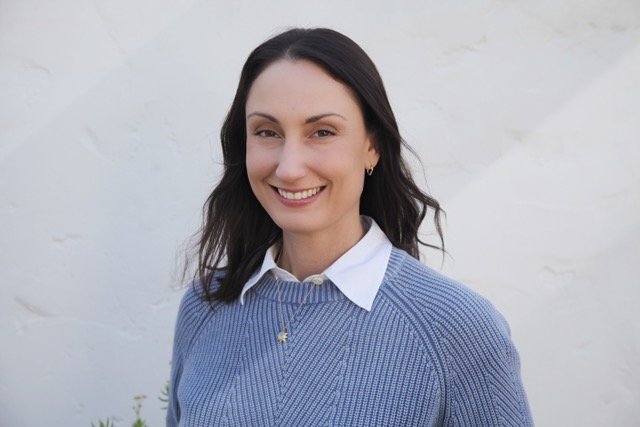Rising from the Ashes: Individuals and Communities Healing after Wildfires
July 22, 2025 12:00 PM to 1:30 PM PST
MEET THE PANELISTS:
melissa brymer, Phd, Psyd
Director of Terrorism and Disaster Program, UCLA/Duke University National Center for Child Traumatic Stress
Researcher, UCLA David Geffen School of Medicine
Dr. Melissa Brymer is Director of the Terrorism and Disaster Program of the UCLA/Duke University National Center for Child Traumatic Stress and its National Child Traumatic Stress Network. In this capacity, Dr. Brymer been involved with the development of acute interventions, assessment, and educational materials in the area of disasters, mass violence and school crises. She is one of the primary authors of NCTSN/NCPTSD Psychological First Aid and Skills for Psychological Recovery and has served as a consultant for many Federal, state, and local agencies across the country and internationally after large-scale emergencies. Dr. Brymer is a Researcher at the David Geffen School of Medicine at UCLA.
Larissa Dooley, Phd
Director of Research and Programs, Climate Mental Health Network
Larissa Dooley, PhD, is the Director of Research and Programs at the Climate Mental Health Network. With a background in health psychology, she conducts research on the impacts of climate change on mental health and wellbeing, particularly in the context of education. In collaboration with her team, she designs, implements, and evaluates programs aimed at enhancing emotional resilience in the face of climate-related challenges. Her goals with her work are to help individuals and communities navigate the mental health impacts of a changing climate and build resilience.
Moderators:
Jeffrey I. Gold, PhD
Jeffrey I. Gold, PhD, is a Professor in the Departments of Anesthesiology, Pediatrics, and Psychiatry & Behavioral Sciences at the Keck School of Medicine, University of Southern California. Dr. Gold, a licensed clinical psychologist, is Director Emeritus and Founder of the Pediatric Pain Management Clinic within the comprehensive interdisciplinary Pain Medicine Division in the Department of Anesthesiology Critical Care Medicine, Children’s Hospital Los Angeles (CHLA). He is the director of the Biobehavioral Pain Lab, current Director and co-founder of the USC Institute for Integrative Health & Wellness, Chair for the Institutional Review Board (IRB) at the Saban Research Institute at CHLA, and faculty within the Pediatric Psychology specialization at CHLA.
Dr. Gold is actively engaged in the evaluation and utility of integrative medicine practices (acupuncture, massage, yoga, mindfulness, biofeedback), digital therapeutics (i.e., virtual reality, digital mobile applications, virtual care) focused on patients, their families, and healthcare providers targeting health and mental health outcomes (i.e., reducing stress, pain, anxiety, psychological distress), while increasing comfort, satisfaction, and overall positive health outcomes and wellness.
Randye Semple, PhD
Dr. Semple is a Professor in the Department of Psychiatry and the Behavioral Sciences at the Keck School of Medicine of USC. She is the Director of Psychological and Behavioral Health Services at LAC+USC Medical Center and Program Director for the USC Adolescent Trauma Training Center. Dr. Semple co-developed and co-manages the didactic Cognitive-Behavioral Therapy and Longitudinal Trauma Training curricula in the LAC+USC psychiatry residency program and provides clinical and research supervision to psychiatry residents.
Dr. Semple’s research and clinical work focus on mindfulness for psychological health and wellness, with the development and evaluation of mindfulness-based interventions for youth in clinics and schools. She serves on the steering committees of the USC Institute for Integrative Health and Wellness and Mindful USC, the research committee of the American Mindfulness Research Association, and is a Co-Principal Investigator of the US Center for Mindfulness Science.
A licensed clinical psychologist, Dr. Semple is the lead developer of the evidence-based clinical intervention, Mindfulness-Based Cognitive Therapy for Children (MBCT-C), and a mindfulness curriculum adapted for K-12 classrooms, The Mindfulness Matters Program (MMP). She has authored or co-authored over 60 scientific publications and two books for clinicians and K-12 teachers: Mindfulness-Based Cognitive Therapy for Anxious Children (2011, New Harbinger) and The Mindfulness Matters Program for Children and Adolescents: Strategies, Activities, and Techniques for Therapists and Teachers (2019, Guilford). More information about these programs is available on Dr. Semple’s website at www.randyesemple.com.





